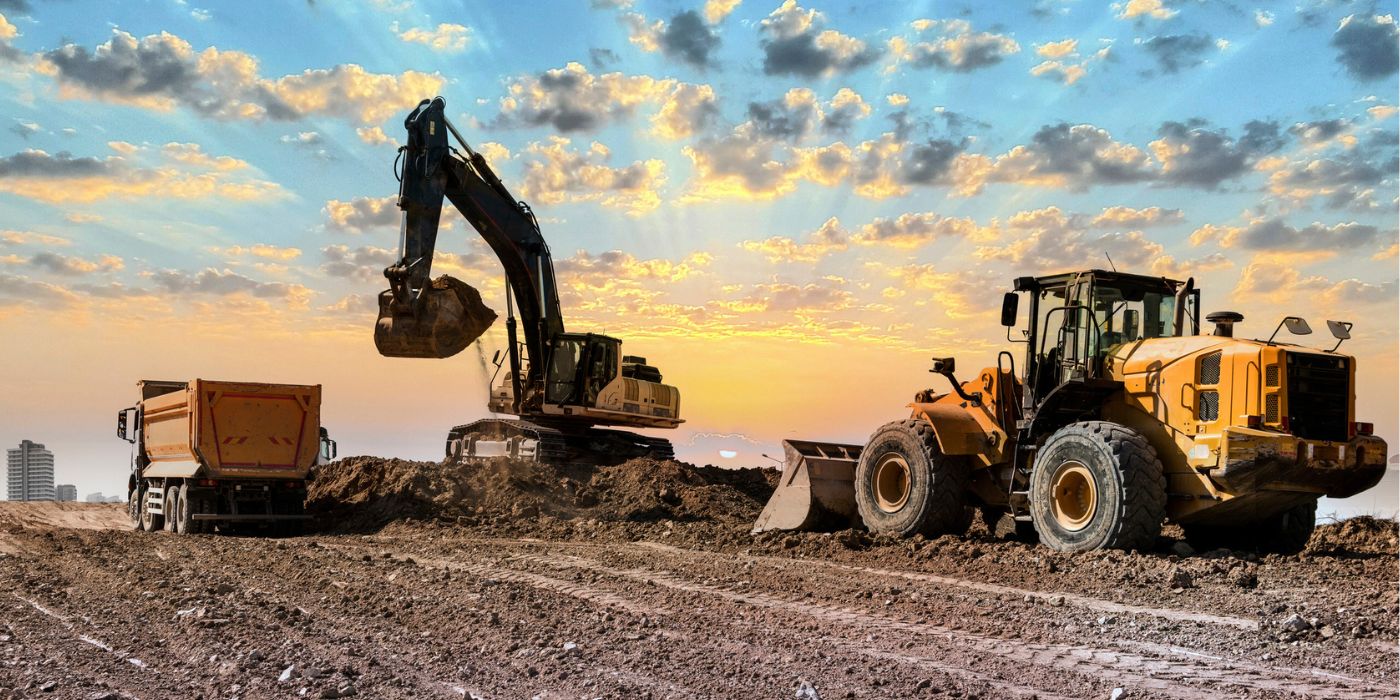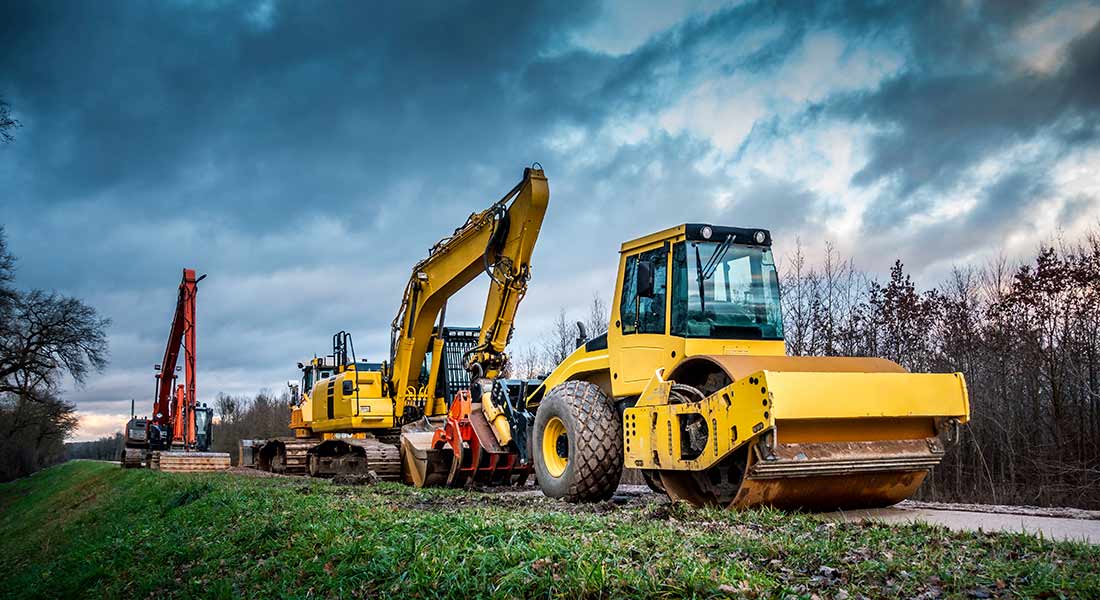Equipment Rental Company in Tuscaloosa, AL: Your Relied On Resource for Machinery
Equipment Rental Company in Tuscaloosa, AL: Your Relied On Resource for Machinery
Blog Article
Exploring the Financial Conveniences of Leasing Building Devices Contrasted to Owning It Long-Term
The choice in between possessing and renting building devices is crucial for monetary management in the industry. Renting deals prompt cost financial savings and operational versatility, enabling firms to assign resources extra effectively. In comparison, possession features significant long-lasting financial commitments, consisting of maintenance and devaluation. As service providers consider these choices, the influence on capital, job timelines, and innovation accessibility comes to be progressively considerable. Recognizing these nuances is necessary, specifically when thinking about just how they line up with certain job needs and monetary techniques. What aspects should be prioritized to make sure optimal decision-making in this facility landscape?

Expense Contrast: Renting Vs. Possessing
When assessing the monetary ramifications of leasing versus owning building equipment, a detailed expense comparison is essential for making educated decisions. The choice between renting out and having can substantially affect a firm's bottom line, and understanding the associated expenses is vital.
Renting out construction devices typically involves lower upfront expenses, permitting businesses to allocate funding to other functional requirements. Rental contracts typically include flexible terms, making it possible for companies to gain access to advanced equipment without long-lasting commitments. This flexibility can be specifically advantageous for short-term projects or fluctuating work. However, rental prices can collect with time, possibly surpassing the cost of possession if devices is required for a prolonged period.
Alternatively, having building and construction tools requires a considerable first investment, together with continuous prices such as funding, insurance, and depreciation. While possession can lead to lasting cost savings, it also links up resources and may not supply the very same level of adaptability as leasing. Furthermore, having equipment requires a dedication to its utilization, which may not always align with task demands.
Ultimately, the choice to rent or have needs to be based on a comprehensive analysis of specific project needs, economic capability, and long-lasting strategic goals.

Upkeep Duties and costs
The selection between owning and renting construction tools not only includes economic factors to consider but additionally incorporates ongoing maintenance expenses and duties. Having tools requires a significant commitment to its upkeep, that includes routine examinations, repair services, and prospective upgrades. These duties can quickly collect, leading to unforeseen expenses that can strain a spending plan.
In comparison, when renting out tools, upkeep is normally the responsibility of the rental business. This setup allows contractors to stay clear of the financial problem connected with wear and tear, as well as the logistical obstacles of organizing repair services. Rental contracts typically consist of arrangements for maintenance, meaning that specialists can concentrate on completing tasks rather than stressing over devices condition.
Moreover, the diverse series of devices available for rent makes it possible for business to choose the most recent models with advanced technology, which can boost performance and efficiency - scissor lift rental in Tuscaloosa, AL. By going with rentals, businesses can prevent the long-lasting obligation of equipment devaluation and the associated maintenance frustrations. Eventually, examining maintenance expenditures and responsibilities is critical for making an educated choice regarding whether to rent or possess building tools, considerably influencing overall job costs and operational performance

Depreciation Influence On Ownership

A considerable factor to take into consideration in the decision to have construction tools is the effect of devaluation on general possession prices. Devaluation stands for the decline in value of the devices with time, affected by variables such as usage, deterioration, and developments in technology. As tools ages, its market price reduces, which can significantly impact the proprietor's financial position when it comes time to trade the devices or market.
For building and construction firms, this devaluation can equate to substantial losses if the equipment is not utilized to its maximum capacity or if it lapses. Proprietors should make up devaluation in their financial projections, which can lead to higher general expenses compared to renting out. In addition, the tax implications of devaluation can be intricate; while it might supply some tax advantages, these are often countered by the fact of minimized resale worth.
Inevitably, the worry of devaluation stresses the value of comprehending the long-term financial commitment included in having building and construction devices. Companies must thoroughly examine how typically they will utilize the devices and the possible monetary impact of devaluation to make an enlightened decision concerning ownership versus renting out.
Economic Flexibility of Leasing
Leasing construction devices supplies navigate to these guys considerable economic adaptability, enabling companies to allocate sources more efficiently. This adaptability is especially important in a sector identified by rising and fall task needs and differing workloads. By opting to rent, services can stay clear of the substantial capital outlay required for acquiring equipment, protecting capital for other functional demands.
Furthermore, leasing devices allows firms to tailor their tools selections to certain task demands without the lasting dedication connected with ownership. This indicates that companies can quickly scale their tools inventory up or down based upon awaited and present project demands. Consequently, this versatility reduces the danger of over-investment in equipment that might come to be underutilized or outdated over time.
One more financial advantage of renting is the capacity for tax obligation benefits. Rental payments are usually thought about operating costs, permitting for instant tax reductions, unlike depreciation on owned and operated tools, which is spread out over a number of years. scissor lift rental in Tuscaloosa, AL. This immediate expenditure acknowledgment can even more boost a company's cash setting
Long-Term Project Factors To Consider
When reviewing the long-term needs of a construction business, the decision between leasing and possessing tools becomes a lot more intricate. For tasks with extensive timelines, buying tools might appear beneficial due to the capacity for reduced general expenses.
The building and construction sector is developing quickly, with new equipment offering boosted performance and safety and security attributes. This flexibility is especially useful for businesses that take care of varied projects requiring various types of devices.
In addition, monetary stability plays a critical role. Possessing devices frequently involves substantial capital expense browse around this site and devaluation worries, while leasing allows for even more predictable budgeting and cash money flow. Eventually, the selection in between having and renting must be straightened with the critical goals of the building and construction service, considering both existing and awaited task needs.
Final Thought
In final thought, leasing building devices supplies considerable economic advantages over long-lasting possession. Ultimately, the decision to rent out rather than very own aligns with the vibrant nature of building jobs, allowing for versatility and accessibility to the newest devices without the monetary concerns linked with possession.
As equipment ages, its market worth lessens, which can considerably impact the proprietor's financial position when it comes time to sell or trade the tools.
Renting out construction devices supplies substantial economic flexibility, enabling firms to designate sources a lot more successfully.Furthermore, renting tools allows business to customize their equipment options to specific task needs without the long-lasting commitment payloader rental connected with possession.In conclusion, leasing construction equipment uses significant monetary advantages over long-lasting possession. Ultimately, the decision to rent instead than very own aligns with the vibrant nature of building jobs, enabling for adaptability and accessibility to the most current equipment without the financial problems linked with ownership.
Report this page